Courses
What will you study this summer? Select course options by course type, grade level, or subject area. High school students interested in the two-week residential, enrichment experience should select two courses. Start building your summer today!
Applied Mathematics
Students will explore encryption/decryption techniques and methods of mathematical modeling through hands-on experience with codes, biological systems, and financial markets. Math areas covered include logic and set theory, number theory, and linear modeling. Additionally, students will learn to apply these mathematical concepts to analyze complex real-world problems and develop innovative solutions.

- -
- -
ARCH 1001: Analog Design
At the root of the architecture discipline is the study of design. In this two-week course, students will focus on analog techniques of design utilizing hand drawing, mixed media exploration, shadow studies, and physical model making. The course will embolden students to embrace the tactile facets of the creative process as a foundation of Architecture and its allied fields. Students will explore the built environment from a haptic perspective, experiencing the universal spatial, environmental, and social elements of architecture while creating beautiful work that will be digitally archived for their professional portfolio.
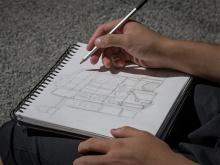
- -
- -
ARCH 1002: 3D Digital Design
Jump into the digital realm exploring the intersection of digital design, representation, and documentation using the Adobe Creative Suite, as well as Rhino (a 3d modeling software). In this two-week course, students will focus on visual and spatial communication through digital media and express their design ideas in the digital laboratory using laser cutters and 3d printers. They will work with innovative digital tools to compile a portfolio of work that is lively, relevant and professional reflecting a strong understanding of translating architectural design through orthographics and three-dimensional space.
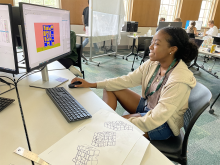
- -
ARCH 1901: Architectural Futures: Designing with Artificial Intelligence
Explore architecture through a futuristic lens in this two-week design studio. Students will discover how AI can become an active partner in an iterative design process, guiding decisions from concept to proposal with opportunities for deeper analysis. Through hands-on assignments and collaborative projects, the course emphasizes developing human-centered narratives and sustainable solutions that harmonize with their surroundings. By the end, students will understand how AI-assisted design enhances creativity, supports informed decision-making, and deepens exploration in architecture.

- -
ARCH 1901: Digital Graphic Design & Typography
Graphic design is about mixing creativity + strategy to communicate visually. Images, fonts, and colors combine to tell a story, catch attention, or solve a problem. From logos to posters to app layouts, it’s art with a purpose! Typography is a big part of graphic design. The style of letters changes how we understand a message—bold letters can be powerful, curvy ones can be playful. It’s not just about reading—it’s about feeling what the words say! Also: Adobe Illustrator + Photoshop—AND THE ART OF SEEING!

- -
ARCH 1901: Fundamentals of Architecture and Design Principles Through Cinema
How do we analyze our daily journeys from home and back through architectural landscapes? In this course, students will explore fundamental design principles through the lens of media, film, and cinema. A uniquely modern art form showcasing design at every level on screen, cinematic sequences use the language of architecture to propel people through journeys of space and time. In class we will explore design and storytelling from the point of view of the audience and the creative, engaging in media and consumption from critical perspectives. For their final project, students will craft design projects articulating their own elemental language of architectural design.
Note: Students will be required to watch a variety of films in this course, including some films that are not rated and some that are rated R.

- -
ARCH 1901: The sketchbook : articulating space > cataloging place
What do the director of Hellboy II and the French Romantic Delacroix have in common? Fantastic sketchbooks! Just like you did from the age of two to ten years old [and perhaps further], these creative powerhouses documented their places and their thoughts in sketchbooks, extensions of their limbs, and in words, lines and washes. For these two weeks, you will be doing the same, demystifying mark and stroke, and you will leave with the capacity to articulate space and place through a two-dimensional device.
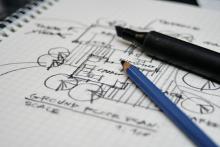
- -
ASTR 1005: Introduction to the Solar System
Did you know Tulane has an observatory? In this class, we’ll have the opportunity to observe the Moon and some of the planets through the 16-in telescope. We’ll begin with a survey of the history of astronomy, and investigate the formation and attributes of the sun and other stars, the eight planets (sorry Pluto!) and major moons, and dwarf planets and asteroids. Finally, we’ll situate the solar system in the context of our galaxy and in the universe.

- -
Biomedical Engineering – Muscles, Bones, and Biomechanics
This course offers an overview of key biomedical concepts and human body measurements, designed to pique the interest of high school students exploring diverse career paths from medicine to engineering and beyond. Students will delve into muscles, bones, and other body systems, and how they all interact. Through interactive sessions, students will cover a wide array of topics, make hands-on body measurements, and innovate in biomedical design labs. Students will gain valuable insights into how the human body works and learn more about potential career avenues.
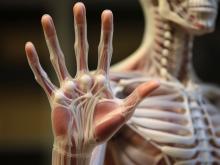
- -
- -
Biomedical Engineering – Protecting Against Traumatic Brain Injuries
For every action there is an equal and opposite reaction. Students will investigate how engineers apply Newton's third law of motion to studying the causes of traumatic brain injuries and design solutions to prevent them. Students will collaboratively apply that knowledge to design and test helmets for Quidditch players in Harry Potter’s world and undergraduate muggles.
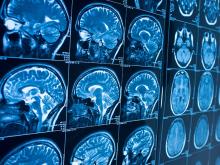
- -
- -
BMEN 1005: Introduction to Musculoskeletal Anatomy and Biomechanics
This course will introduce students to basic biomedical concepts and measurements, as well as lay a foundation for understanding and using technical terminology employed by pre-clinical students and medical professionals. We will focus on the anatomy and physiology of the musculoskeletal systems and their interplay with other systems in the human body. In addition to lectures, students will gain practical experience in biomedical measurements utilizing modern techniques and engage in hands-on biomedical design experience through labs and activities.
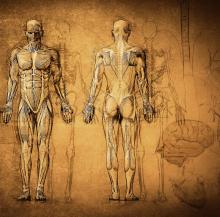
- -
- -
Bugging Out with Louisiana Arthropods
This course will teach students the basics of arthropod identification, and most importantly, it will be a fun way to challenge students’ perceptions of one of the most abundant and important groups of animals: arthropods!
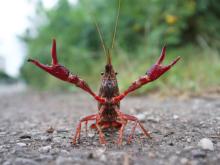
- -
- -
CELL 1070: Genomic Insights: Exploring DNA, Proteins, and Traits in the Lab
Get ready to unlock the secrets of genetics in this hands-on course where you'll explore the amazing relationship between genes, proteins, and the traits that make us unique! Discover the fascinating world of chromosomes and genes, and learn how the processes of transcription and translation shape everything from your eye color to your favorite hobbies. But that’s not all! In the lab, you’ll roll up your sleeves and dive into molecular techniques like DNA extraction, PCR, and DNA digestion. Ever wondered what’s really in your dinner? You’ll even analyze your own genes and investigate seafood species at a genetic level to uncover the truth about seafood mislabeling. Join us on this thrilling adventure through the building blocks of life and become a real-life genetic detective!
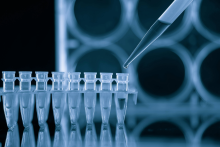
- -
- -
CENG 1100: Engineering the Future: Innovations in ChemE
Explore how chemical engineers have transformed our world and uncover the cutting-edge innovations driving solutions to some of the planet’s greatest challenges. From developing sustainable energy solutions, revolutionizing medicine, pioneering food production, creating cutting-edge materials, and advancing environmental protection—this course highlights the powerful global impact of chemical engineering. Through readings, interactive discussions, hands-on projects, and guest lectures and tours led by industry leaders, you’ll gain a deep understanding of how these innovations are transforming industries and improving lives. Discover how you can join the next wave of engineers driving change for a better future!
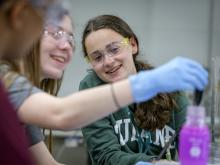
- -
CHEM 1010: Introduction to Chemical Analysis and Purification
We are all continually surrounded by chemicals, from drugs to plastics and from fuel to food additives. Ensuring these materials are free of dangerous contaminants is essential for human health and development. This course will introduce students to the most important techniques for purifying and analyzing chemicals. We will use what we have learned in the classroom to isolate a number of different molecules in the lab, from nylon to inorganic materials of eye-catching color.

- -
Climate Change
Can you predict the future? In this course, students will expand their understanding of climate change and the impact that factors such as rising global sea-surface temperatures have on our communities. They will be challenged to propose solutions on how humans can counteract climate change and develop safeguards for their own future.
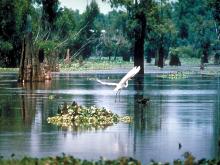
- -
CMPS 1010: Artificial Intelligence Systems
In this course, we will design and build AI agents. Students will gain hands-on experience scripting small AI-driven applications, understanding how these systems operate, and critically engaging with the social and technical implications of these systems. In this introductory course, we will design, implement, and test artificial intelligence-based systems. Topics will include Python scripting, generative AI, retrieval-augmented generation, and AI Agents. While designing and implementing AI agents, students will engage critically with the social and ethical implications of these systems.
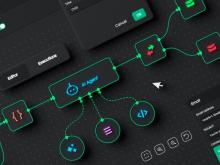
- -
Coastal Engineering
Can you picture yourself solving critical issues along our coastal waterways? As our climate changes and we see the sea levels rise, scientists and engineers must work together to create practical solutions for the future. Students will explore the current issues that impact coastal communities and collaboratively strategize how they can make positive changes for resilience and sustainability now and moving forward.
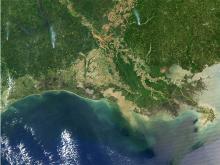
- -
Communications for Feminist Civic Engagement
Students are passionate about social issues in their communities. But how can they get the word out and effect change? In this course, students will learn the tactics of persuasive communications necessary to advocate for causes they believe in. Students will practice these methods, from effective public speaking to strategic social media, to create effective communications. Seminar discussions will focus on contemporary issues of gender, politics, and advocacy work.
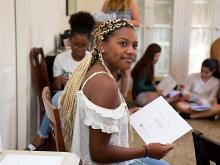
- -
- -
Discover the Art of Data Visualization with Textiles
Do you have a passion for data and a love for working with fibers? If so, this unique class is perfect for you! In this innovative course you’ll learn to tell compelling stories through data, using the beautiful and tactile mediums of textile arts. We’ll dive into various techniques such as weaving, felting, knitting, and quilting to creatively represent data. By the end of the course, you’ll have completed a unique piece that combines your love for data and textiles, showcasing your ability to merge art and information in a visually captivating way. Join us and bring your data to life through the art of textiles!
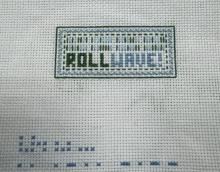
- -
Earth Snapshots: What Satellites Reveal About Our Changing Planet
Ever wondered what satellites high above can observe—or if they can see you walking down the street? Curious how scientists track hurricanes like Katrina and warn people before they strike? In this course, you will get hands-on experience exploring these questions and more. You’ll analyze real satellite images to track hurricanes and examine environmental changes like wetland loss, deforestation and urban growth, fly drones over New Orleans to study local changes, and participate in discussions around solutions to protect our planet.

- -
EBIO 1070: Climate Change in Coastal Ecosystems
How do coastal plants, animals, and microbes respond to climate change? Are coastal ecosystems resilient to climate change? This course will introduce students to the complex ways that climate change affects ecological systems in coastal areas. We will explore topics through lectures, readings, debates, field trips, and group research projects. We will learn about restoration and mitigation techniques and discuss ways students can act on behalf of threatened ecosystems.
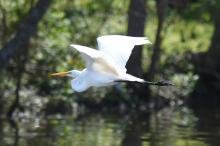
- -
EENS 1010: Satellites, Drones and Earth: How We Observe Our Planet
Ever wonder how satellites and drones observe Earth and reveal what’s happening across the planet from the air, land, and oceans? Are you eager to discover Earth from a whole new perspective? In this Satellites, Drones, and Earth course, you’ll fly drones, analyze satellite images, and explore how our planet is changing. No experience is needed, just your curiosity and a keen eye for discovery!
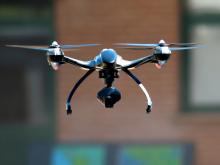
- -
EENS 1410: Discovering Our Solar Neighborhood: Planets, Moons, and Beyond
Have you ever looked up at the sky, and wondered what lies beyond the clouds? Get ready for the ultimate adventure — a journey through our Solar System and its wonders! Lecture material will provide both overviews of planetary bodies in our Solar System and examine fundamental geologic processes like volcanism, tectonism, and impact cratering. Our bias will be towards the rocky inner planets, but we will also study asteroids and the outer Solar System. An emphasis will be placed throughout the course on how observations of the Solar System are made. From scorching Mercury to icy Neptune, each planet and planetary body holds a unique story waiting to be explored!

- -
Engineering New Orleans
In this course, students will learn about common engineering disciplines by exploring engineering projects local to the New Orleans area. From the St. Louis Cathedral to the Superdome, the Crescent City Connection to the Causeway, the Lapeyre Shrimp Peeler to Mardi Gras Megafloats, Oil & Gas to Wind & Solar Energy, NASA Rockets to Nerves-On-A-Chip, New Orleans has a wide array of engineering interests. These projects, advancements, and industries will be introduced and put into perspective with discussions of their technology, histories, economic impacts, and cultural influence. The topics will be brought to life by local guest speakers and trips to one or more of the following: NASA Michoud, Mardi Gras World, the Superdome, and the French Quarter.

- -
ENGP 1005: Introduction to Robotics
This course offers an exciting introduction to the world of robotics, blending foundational principles with hands-on experience in designing and building real-world robotic systems. Students will dive into the practical application of electronics, where they’ll craft innovative projects through engaging labs and interactive design challenges. The curriculum also integrates computer programming, empowering you to bring your robotic creations to life and solve real-world problems with cutting-edge technology.
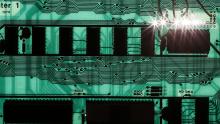
- -
ENGP 1010: Introduction to the MakerSpace
Dive into the world of making at Tulane’s MakerSpace! In this session, students will discover the software and tools that power modern rapid prototyping. We’ll explore the design process, turning your creative ideas into tangible projects through a hands-on lab experience. Unleash your imagination as you familiarize yourself with the design software and machinery of the Tulane MakerSpace. From the precision of our laser cutter—capable of etching and cutting wood, acrylic, and glass—to the versatile 3D printer that transmutes your thoughts and ideas into plastic, you’ll make your imagination become reality. By the end of the session, you’ll have designed and built your very own inventions, whether it’s a prototype for a groundbreaking product or a stunning piece of art or costume. Get ready to innovate and create!
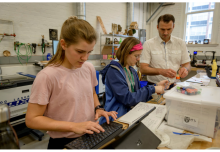
- -
ENGP 1015: Introduction to Engineering Design with Lab
Unleash your inner innovator in this dynamic engineering course! Dive into the world of the engineering design process, solving real-world problems with a team. Engaging lectures guide you through problem-solving phases, while hands-on experience with Fusion 360 and rapid prototyping tools like 3-D printing and laser cutting elevates your skills. Along the way, you'll also cultivate teamwork and project management abilities. Join us and embark on a journey to unlock your creative potential and shape the future!
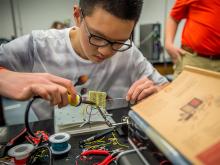
- -
Entrepreneurship in the Big Easy and Beyond
Entrepreneurship in the Big Easy and Beyond is a Tulane Summer Programs course designed to introduce New Orleans high school students to the fundamentals of entrepreneurship through hands-on learning. Students will explore idea generation, business model development, and the entrepreneurial mindset while gaining insights from local founders and industry leaders shaping the region’s economy. The class culminates in a live pitch competition, giving students the opportunity to showcase their ventures and practice real-world communication skills.
Note: This course is only open to rising sophomores, juniors, and seniors who currently attend high school in the city of New Orleans.
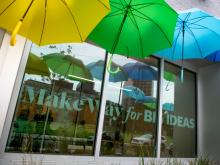
- -
Environmental Media Production: Advocacy in Action
In this hands-on media production course, students create short documentaries, video portraits, and digital content for a real environmental advocacy group. Using smartphones and DaVinci Resolve, students learn the storytelling and technical skills to support one non-profit’s strategy for change. We will explore how media shapes awareness, policy, and action and how you can make work that matters.
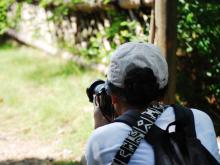
- -
Explorations in Neuroscience
Have you ever wondered how neuroscientists learn more about the brain? In this course, students will be introduced to laboratory techniques fundamental to the study of neuroscience. These techniques will range from processing brain tissue for microscopy to recording electrical activity from living neurons. Students will gain practical experience that will provide them with a frame of reference for how research is conducted, as well as gain skills that are translatable to other scientific fields.
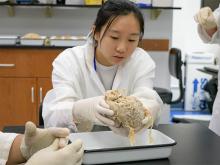
- -
Explore the Solar System
Did you know Tulane has an observatory? Look for the dome on the roof of Jones Hall! We will observe the moon, and the planets with their moons. We will begin by surveying the history of astronomy up to the present day, and take part in some current research classifying galaxy shapes. We’ll study the formation and attributes of the sun and other stars, of the eight planets and their moons, plus the dwarf planets. Finally, we’ll situate our solar system in the galaxy and the universe.

- -
- -
Explore the Wonders of Cellular and Molecular Biology
Embark on an exhilarating journey into the realm of molecular and cellular biology with our dynamic hands-on course! Dive deep into essential lab techniques such as gel electrophoresis, PCR, and microscopy, all while unraveling the fundamental concepts of biology. Through captivating experiments, you’ll not only gain practical skills but also build the confidence to excel in the lab. This course is designed for high school students aspiring to a future in science, blending theoretical knowledge with hands-on experience to prepare you for success in advanced biological studies. Join us and uncover the incredible processes that sustain life—unlock your potential as a future scientist and let your curiosity thrive!
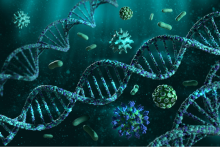
- -
- -
Form, Function, and Evolution in Louisiana’s Fishes
This four-day workshop introduces students to the diversity and evolution of Louisiana’s fishes. Students will learn how to recognize common fish families using visible traits, explore how morphology reflects ecology, and connect those traits to evolutionary relationships through a simplified phylogeny. The course culminates in a field-based visit to the Tulane Biodiversity Research Institute (TUBRI), where participants will see how biodiversity data, specimens, and digital imaging come together to tell the story of fish evolution. This course emphasizes hands-on learning, team-based inquiry, and scientific communication. Students will practice observation, critical thinking, and visual reasoning while engaging directly with real specimens and digital tools used by researchers. No prior experience with fish biology is required; just curiosity and a willingness to explore!
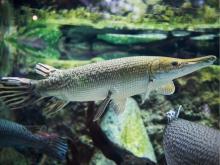
- -
From Chains to Change: Exploring Criminal Justice Reform
Explore Louisiana’s role as a global leader in incarceration and its ongoing efforts in criminal justice reform. This class dives into the inequalities of the justice system, the fight for change, and the power of media in shaping perceptions about crime and punishment. Students will meet with formerly incarcerated activists, study the prison industrial complex, and learn media techniques to create impactful projects. Through hands-on collaboration, you’ll produce media pieces for Voice of the Experienced (VOTE), amplifying stories of reform and redemption. Join us to uncover the challenges and possibilities of building a fairer justice system!
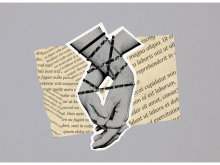
- -
From Data to Maps: Exploring the World with GIS
Maps are where science meets art! Maps are more than 2D representations of geography. They can convey so much data without any words. Historically, humans have created and used maps to convey information. From ancient civilizations to modern times, maps can convey a wealth of knowledge. Join the fun and truly learn the meaning of the old phrase - a picture is worth a thousand words!
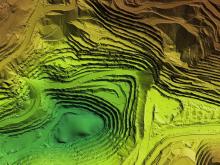
- -
Future of Podcasting
For most of its history, podcasting was an audio-first and independent practice, accessible to anyone with a microphone, a computer, and an RSS feed. Podcasters in 2026 face a very different world, where mass audiences engage podcasts as a visual-first format and streaming giants like Spotify, YouTube, Apple, and Netflix dominate the scene. In this course, we take a critical look at podcasting's past to pursue answers about its future. What will the next 5 years hold for podcasters, the art of podcasting, and the podcasting industry?
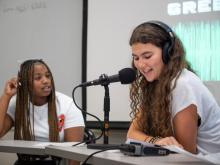
- -
Galactic Politics: Science Fiction and the Politics of Today
This is the Way. Science fiction enables us to study the contemporary political world from a distance -- to shed light on its problems and its weaknesses, and to be imaginative about alternatives, both hope-filled and deeply troubling. Through science fiction, we will consider ideas like power, authority, legitimacy, equality, and identity. Many of the readings, television shows, and movies we examine in this course will reflect upon the current political, social, cultural, and religious environment we reside in; whereas the technology may be from a distant future, the struggles the characters face all find their roots in our collective human existence.
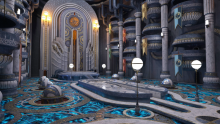
- -
- -
Herpetology in the Bayou: Exploring Reptiles and Amphibians in Louisiana
This course offers high school students an exciting opportunity to explore the fascinating world of reptiles and amphibians native to Louisiana. Through engaging activities, including hands-on habitat modeling, species identification, and interactive discussions, participants will learn about the local herpetofauna's unique adaptations and ecological roles, such as green anoles and American alligators. The course will also highlight the importance of conservation and introduce students to citizen science projects that allow them to contribute to herpetological research. This course aims to inspire the next generation of scientists and conservationists committed to protecting local ecosystems.
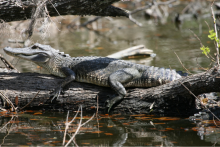
- -
History Reclaimed: Civil Rights, Race, & Culture in New Orleans
Discover the untold stories of New Orleans through its cultural institutions! This class explores how museums and historic sites have both silenced and amplified Black voices, focusing on three impactful spaces: the TEP Center, the New Orleans African American Museum, and the Backstreet Cultural Museum. You’ll learn about their roles in addressing racism, celebrating Black traditions, and preserving African American history. With interactive class visits, an exciting field trip, and group projects, you’ll dive deep into the powerful narratives shaping New Orleans’ culture. Join us to uncover history, challenge perspectives, and create meaningful audio-visual projects!
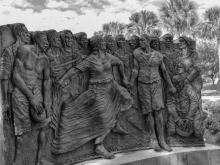
- -
Infectious Disease: Detection and Control
As a leader in public health for over a century, Tulane University recognizes the importance of community outreach and action. Students will examine the factors leading to outbreaks of disease and the impact that infectious diseases have on our society. Empowered with this information, they will design public health campaigns to mitigate the spread of infectious diseases.

- -
Infectious Disease: Epidemics and Public Health
From changing social norms to transforming economies, epidemics have left a lasting impact on society. This hands-on, discussion-driven course explores how culture, society, politics, and the environment shape the spread and control of epidemics—and how public health experts use data to inform policies that protect us all. In this cross-disciplinary experience, students will explore the history of major epidemics like the Spanish Flu, cholera, HIV, SARS-CoV-2, and the plague, gain foundational skills in detecting and controlling disease, and learn effective communication strategies to combat misinformation. Discover for yourself how epidemics not only affect our lives but shape our world.

- -
Insiders and Outsiders: New Orleans Through the Eyes of Documentary Filmmakers
Explore New Orleans through documentary film. Students will examine historic and contemporary documentaries that portray the city’s people, culture, crises, and change. We’ll consider how filmmakers’ backgrounds and motivations shape what we see and what’s left unsaid. Through screenings, discussions, and conversations with filmmakers, students will gain insight into the ongoing true story of New Orleans.

- -
Introduction to Forensics: The Science of Solving Mysteries
This course introduces a wide range of tools and technologies used by today’s forensic scientists. Through hands-on activities and demonstrations, students will learn how evidence is collected, preserved, and interpreted. You’ll explore topics like DNA, trace materials, and basic crime-scene protocols to learn how patterns, observations, and scientific reasoning guide investigators toward accurate conclusions. By the end of the week, you’ll have a stronger understanding of laboratory methods, analytical thinking, and the role of science in real-world investigations.
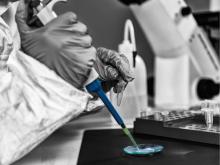
- -
- -
Introduction to Louisiana Mammals
Throughout this week-long course, we will discuss taxonomy, diversity/adaptations, behavior, conservation, and monitoring techniques as they relate to Louisiana mammals. By the end of this course, students will be familiar with the mammalian species of Louisiana, as well as the unique challenges that face mammalian conservationists in order to empower and inspire a future career in biology.
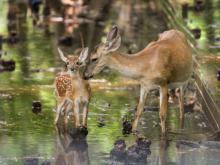
- -
Introduction to Medicine: Finding Your Path
Are you ready to embark on a transformative journey through the fascinating world of medicine? In this engaging course, students will explore diverse specialties—from pediatrics to surgery— through hands-on experiences, and opportunities for self-reflection. Students will gain a comprehensive understanding of the roles, responsibilities, and daily challenges faced by providers in different fields. This course encourages personal growth and self-discovery, inviting students to reflect on their strengths and interests while considering various career paths within the medical field. By the end of the course, students will have a clearer vision of their future and a deeper understanding of what it means to be a doctor. This course will cover a variety of topics that medical practitioners engage in, including patient education on preventative care, contraception, postoperative care, and palliative care.
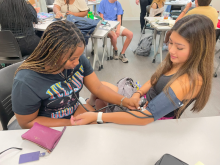
- -
- -
- -
Introduction to Medicine: Thinking Like a Doctor
Medical professionals play one of the most critical roles in our society, improving the lives and well-being of those in need - but how do they get to a diagnosis? Students will get firsthand experience with how doctors process information to formulate their next steps, gaining insight into how doctors think. Along the way, students will practice seeing patients to collect history, learn potentially life-saving medical skills, and get a glimpse into what medical training really entails. Students will be challenged to use what they learn to present their own mystery case to their peers.
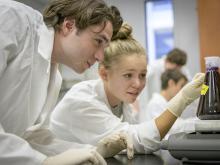
- -
- -
- -
Leafy Legends: The Science of Plant Evolution and Adaptation
In this immersive course, students will explore the evolution of plants from algae to angiosperms, tracing key milestones that shaped modern plant lineages. We’ll take a field trip to visit the City Park Botanical Garden, where students will investigate diverse plant forms. Back in class, we’ll study floral morphology and pollination through hands-on data collection and analysis of local plants and pollinators. Diving into plant genetics, we’ll examine the roles of inbreeding and gene flow through interactive activities. A hands-on DNA extraction lab will allow students to compare DNA yields from various plants, like strawberries and bananas. Finally, students will collaborate in a mock poster session to analyze local adaptation data, honing their scientific communication skills and deepening their understanding of how plants evolve in response to environmental pressures.
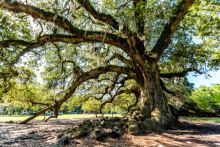
- -
Learning from Women of the Civil Rights Movement Past and Present
Journey across the history of the Deep South to uncover the under told stories of women who transformed the Civil Rights Movement. From the young girls integrating New Orleans schools to the Freedom Riders and Mississippi Delta organizers that birthed the Blues, this course spotlights the courage and creativity behind America’s long march to freedom. Through oral histories, music, and reflective projects, students will explore how women have built community power, led strategic resistance, and shaped the nation’s struggle for equality. Discover history through the voices that made change possible and examine how their lessons continue to resonate today.
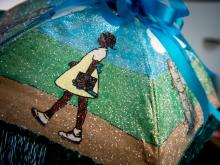
- -
- -
Listening to New Orleans
New Orleans is among the most musically and culturally significant cities in the world. This course examines how the city’s history—shaped by colonialism, enslavement, and musical/cultural resistance within it—has contributed to the city’s imaginings, both local and global. Students will apply ideas from music studies, cultural studies, Black studies, and anthropology to the expressive practices of brass bands, bounce artists, and Black masking Indians, among others.
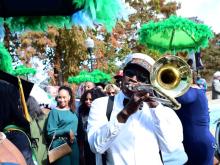
- -
- -
MATH 1005: Exploration in Experimental Mathematics
Do you like playing games with strategy in them? Ever wonder how chess experts figure out winning moves? Then this is the course for you! You will explore a range of games -- many of which will be completely new to you -- and learn how to apply mathematical concepts to determine the optimal strategy in the game. In doing so, you’ll learn how to think like a mathematician and discover that mathematics is much more interesting than memorizing a bunch of formulas! No prior mathematical knowledge is required -- all you need is curiosity and a willingness to work hard.
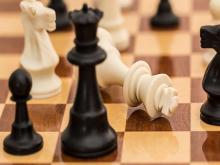
- -
MATH 1008: Sports Analytics: Turning Numbers into Game-Changing Insights
Discover how data drives sports! This course explores rating systems, strength of schedule, voting fairness, and algorithms like PageRank for MVP rankings. Dive into stats like Pythagorean expectation, plus-minus, and park factors, while mastering probability to separate luck from skill. Through real examples from the NBA, NFL, MLB, and soccer, students learn to analyze, predict, and present insights—culminating in a hands-on sports analytics project.
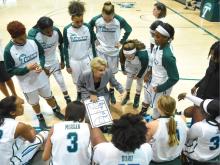
- -
Media and Reproductive Health
How do television, film, and new media technologies reflect and shape public opinion and policy around reproductive issues? This course focuses on relationships among reproductive health, popular media, social media, public policy, and movements for reproductive rights and justice in the United States. By analyzing a range of today’s media – from Jane the Virgin and Teen Mom to sex ed and fertility apps – students will gain an understanding of key issues within reproductive health and politics, including the effects of social inequalities on reproductive freedom and outcomes, while practicing important academic skills to increase college readiness.

- -
Music Production and Computers
In this course, students work with experienced faculty to learn techniques for music and audio production using Digital Audio Workstation software like Ableton, Logic, and Reaper. Students engage in critical listening and work on daily creative projects, culminating in a concert of student work at the end of the week. Topics and techniques covered in the class include Sound Synthesis, Sample Manipulation, Songwriting and Arranging, Mixing and Mastering.

- -
- -
NSCI 1015: Introductory Neuroscience with Laboratory
Neuroscientists study everything from the electrical activity of individual brain cells to the behavior of animals and people. In the course, students will learn how to measure human brain waves, interpret data using statistical analysis, and read, write and think like a scientist. Activities include learning basic brain anatomy by studying actual human brain specimens, and preparing brain tissue for study under a microscope.
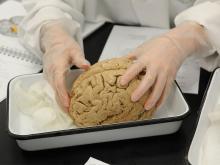
- -
- -
One Planet, One Water, My Role
Remember the times we get warned about a hurricane—when everyone rushes to buy and stock up on bottled water, emptying the shelves? Those moments are reality checks that remind us how essential water is in our lives: hurricanes destroy water systems, leaving communities without clean water for days. Across the world, over 2 billion people face similar challenges, lacking access to safe, clean water for days, months, or even years. In this course, you’ll explore water as both a vital local resource and a global challenge, investigate solutions, and reflect on your own role in creating a more water-secure future.
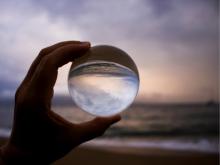
- -
Our Social World: An Overview of Social Psychology
Social psychology is the captivating scientific journey into how your thoughts, feelings, and actions are shaped by interactions with other people and the world around you. In this course we will talk about personality, emotions, relationships, judgements, and more. New topics will be discussed each day, you'll leave this class with a better understanding of the social world.
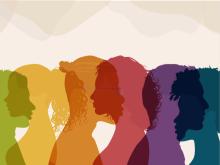
- -
Photojournalism in the Digital Age
Spend the week diving into the history, mechanics, and ethics of visual journalism with hands-on time dedicated to making a cohesive, sequenced photo story with an award-winning National Geographic photographer. Emphasis will be placed on developing story, strengthening technical ability, and learning how to develop specialized skills like intimate portraiture and compelling narrative. No specialized equipment required — smartphone cameras welcome and encouraged.

- -
PHYS 1015: Materials Science and Engineering
This course focuses on the field of materials, an interdisciplinary area that applies the properties of matter to various areas of science and engineering. Students will rotate between five materials science research laboratories, combining lectures with hands-on laboratory activities to excite and introduce students to contemporary methods in superconductivity, optics and lasers, biomaterials, nanotechnology, and energy harvesting technologies. This course will also cover contemporary methods of biomaterials engineering from stem cells to regenerative medicine to cancer therapy.
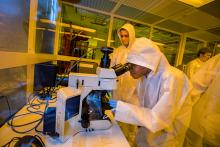
- -
PSYC 1100: Exploring Psychology
This course covers a wide variety of topics from the nervous system and the brain, to learning and memory, disorders and treatment, and social psychology. Through class lectures and a hands-on laboratory component, we will examine real human brain specimens, understand why we sleep and what dreams are for, observe childhood development in action, explore how psychological disorders are treated, and examine how prejudice plays out in the courtroom. Students will learn to read, write, and think like a psychologist and understand how psychologists ask their research questions.
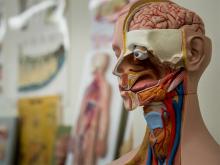
- -
- -
Psychology of Happiness
This course will explore the science of well-being and what influences happiness. Specifically, research has found that happiness is strongly tied to our social connections and feelings of meaning, and that happiness can be influenced by intentional behaviors. In this course, we will address how psychologists define and measure happiness, identify specific psychological factors related to happiness, and examine research-based interventions that improve happiness. This course will provide opportunities for students to apply this science to their own lives to promote well-being, as well as consider how we can more broadly implement these findings to better our communities.
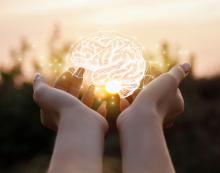
- -
Public Health Nutrition: From Plate to Policy
What we eat affects far more than our own health, it connects to the wellbeing of our communities, our environment, and even the policies that shape our world. Public Health Nutrition: From Plate to Policy invites students to explore how food choices, biology, and society come together to influence health at the individual, household, community, and global levels. The goal of this course is to help students understand nutrition as a key component public health and to see how everyday eating habits are linked to bigger issues like food access, culture, and sustainability.

- -
Reimagining Healthcare: Policy, Innovation, and Ethics in Action
Discover how Healthcare decisions shape communities--and how you can shape the future of healthcare. In this interactive summer course, students will explore the intersection of health policy, advocacy, and innovation. Through engaging workshops and expert guest speakers, students will tackle real-world challenges, such as AI in medicine and health equity. By the end of the course, students will present their own bold innovations for transforming healthcare!

- -
Rocks as Storytellers of Earth’s History
Did you know rocks are silent storytellers? It’s true – rocks can tell us about the history of the Earth. In this course students will unlock the mysteries of the Earth by learning to understand what the physical characteristics of rocks tell us about Earth’s dynamic processes throughout its history.
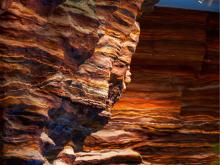
- -
SCEN 1015: Introduction to Music Technology
Ever wonder how your favorite songs are made? This course explores how technology has transformed music creation across history and cultures, from early recording innovations to today's digital production techniques. You'll gain hands-on experience with professional music production tools, learning MIDI composition, audio recording, sampling, and sound synthesis through daily creative projects. The course culminates in an original composition project where you'll apply these skills to create and present your own finished piece. Whether you're interested in songwriting, electronic music, hip-hop production, or experimental sound design, you'll develop your creative and technical skills with our experienced instructors. No prior musical experience is required. Bring your curiosity and a passion for sound!
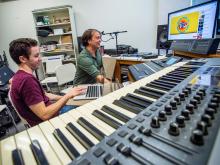
- -
SCEN 1030: Introduction to Creative Coding for the Web
The internet is all around us, and coding for it has never been easier and more accessible, thanks to open source and free software. In this introductory course, students will learn how to code for the web using p5.js (a JavaScript Library) to create interactive and fun applications. Along with the students' own designs, we will explore the work of artists, designers and online communities who have been creating experimental works with code over the last 50 years. By the end of the course, students will have a basic to intermediate understanding of coding structure, logic and syntax in addition to a final project. No prior coding experience is necessary to take this course.
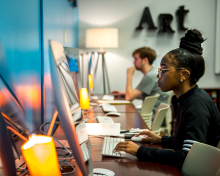
- -
Sports Analytics – Moneyball for All
Should a football team punt on 4th down or go for it? How much money should a team invest on its starting shortstop? Does home-court advantage really matter? These questions were once answered by a coach’s gut-instinct, player’s skill, or perhaps even team tradition. The sports industry is now turning to statistical analysis and data-driven reasoning for answers. In this course, students will focus on how analytics is utilized to guide different aspects of sports teams from game strategy to team operations and management. Students will learn foundational analytical skills and apply them in a variety of situations in the sports industry, ranging from in-game play calling to salary negotiations.

- -
The Mathematical Way of Thinking
How do we know that the Pythagorean Theorem is true or that there are infinitely many prime numbers? It is not based on any measurement or scientific experiment. Instead, mathematical truths are known by constructing logical proofs. In this course, you will solve challenging problems and discover new truths the way mathematicians do.
Pre-requisite: Algebra I

- -
Understanding Health Disparities in Our Communities
Not everyone has the same chance at a healthy life. Factors like where you live, how much money your family makes, and even your race or gender can affect your health. For example, Black men in the U.S. live about 10 years less on average than White women. In this course, you’ll explore why these differences exist, learn how to spot health gaps in different communities, and dig into the real reasons behind them.
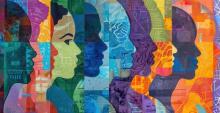
- -
Using Trends to Save Lives: AI-supported Health Equity Social Media Content Creation
From skin care to healthy recipes, and from hurricane preparedness to suicide prevention, public health and medical professionals across the world have started to use social media to share lifesaving information. Students will be exposed to a variety of public health issues, learn from local site visits and guest speakers, and work to create a health equity campaign. Try AI tools that help with key aspects of content creation. Learn and practice creating content and engaging with audiences.

- -
Women and Activism in Louisiana History
This course examines some of the pivotal roles that Louisiana women have played in shaping the political, cultural, environmental, and labor movements in the region since the beginning of the 20th century. Students will learn about how race, class, geography, and cultural identity have shaped women’s strategies for activism in the state and how those strategies have resulted in meaningful change within the region. Participants will also have the opportunity to see first-hand how these stories have been preserved through art, music, oral histories, and the written word right here on Tulane’s campus in the Newcomb Institute’s Special Collections. By the end of the week students will get to flex their own creative muscles and create a zine or poster of a Louisiana activist that has inspired them from the past or the present.
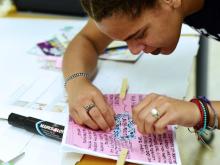
- -
- -
Women’s Life Writing: From Autobiography to Instagram
This course explores how women have represented themselves across centuries — from early autobiographies and diaries to memoirs, hybrid essays, and digital storytelling. Students will read excerpts from women writers across time and create their own life-writing pieces. Together, we’ll ask: How do we find our voices? How do stories shape identity? What does it mean to share our lives in public — in person and online? Students will explore how women tell their stories, from diaries and oral histories to social media and zines. Students will study voices from the Newcomb Archives, listen to oral histories and podcasts, analyze digital storytelling, and create their own collaborative zine or digital project that connects past and present women’s experiences and reflects on how they document and share their own lives.
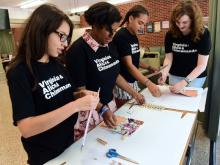
- -
- -
You, Yourself and A.I.: Authentic Storytelling in the Digital Age
We are all experiencing constant changes in algorithms while trying to maintain our own personal rhythms, and trying to stay authentic in an increasingly artificial era. What if rather than trying to keep up, you slowed down and reflected and explored your ideas and opinions more, before posting? This class will focus on various ways to develop and tell your personal story, from writing and photography, to theatre and visual art, using various forms of expression that can serve as a support system to your digital storytelling. Through a variety of individual assignments and collaborative opportunities, you will learn new ways to use your own voice.
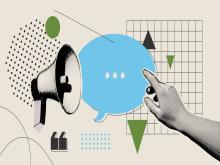
- -
